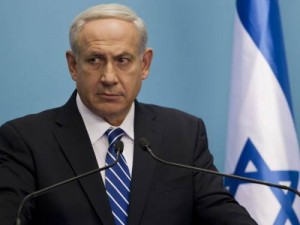 It�s hard to identify the central issue of the campaign that ends today. But the fact that diplomatic and security issues played so secondary a role is surprising.
It�s hard to identify the central issue of the campaign that ends today. But the fact that diplomatic and security issues played so secondary a role is surprising.The 2006 election was dominated by the pullout from Gaza and a proposal to carry out a similar unilateral withdrawal in the West Bank. The 2009 election took place against the background of Israelis� sense of failure in the Second Lebanon War of 2006 and of comparative success in Operation Cast Lead in Gaza early that year. But this year�s election lacked any real security focus.
Prime Minister Benjamin Netanyahu was admittedly photographed with soldiers at every opportunity, but he deliberately minimized talk of the main strategic challenge that preoccupies him: Iran�s nuclear program. Anyone remember all the forecasts that this election would revolve solely around the question of Iran? It didn�t happen. After warning at the UN General Assembly in September that Iran could be on the brink of a nuclear bomb by this summer, Netanyahu made only the vaguest of statements about Iran in his campaign speeches. And most of his rivals didn�t even do that much.
Nevertheless, security was at the heart of Netanyahu�s campaign: He claimed the relative quiet of the past four years stemmed from Israel�s enemies� fears of going head to head with him and his government. When Likud�s campaign advertisements say Israel needs a strong prime minister, the emphasis is on Israel�s security situation.
The message, in a nutshell, is that when Arab uprisings are continuing to shake up the Middle East and Islamic extremists have put down stakes over the border in both Syria and Egypt, you can count on Netanyahu not to make the mistake of offering the Arabs far-reaching concessions. And if he emerges victorious tonight, it will largely be because most voters buy this argument.
Netanyahu has reaped political capital from the fact that his rivals on the left and center left this field wide open. Shelly Yacimovich�s Labor and Yair Lapid�s Yesh Atid fled from any substantive statement on diplomatic issues. Tzipi Livni�s Hatnuah paid lip service to the need to revive the peace process with the Palestinians, but never explained how that could be done under the current circumstances. And all three parties virtually ignored Iran.
Given this picture, Netanyahu could afford to put the Iranian threat in the deep freeze. He�ll pull it out again the day after the election, to explain that a broad coalition is necessary to deal with this unprecedented danger ?(and perhaps also to justify leaving Ehud Barak in the Defense Ministry?).
Once the new government is formed, security will return to center stage, because Netanyahu will have to deal with three urgent issues. The first, and most burning, is the defense budget, and the growing demands to cut it in light of the enormous budget deficit and the declining threat from conventional Arab forces.
Iran will also be hovering in the background: The International Atomic Energy Agency�s next report, due out in February, will apparently reveal further progress in Iran�s nuclear program. Thus, by summer, Netanyahu will have to decide whether to adopt the American view that sanctions and diplomacy suffice to deal with the problem, or prepare an Israeli military operation against Iran and risk a head-on diplomatic collision with the Obama administration.
The third issue, forgotten and bleeding but still as relevant as ever, is the diplomatic process with the Palestinians. The Palestinian Authority secured a limited achievement in November by winning UN recognition as a nonmember observer state, and it is now preparing its next steps, signs of which have already been visible on the ground in recent weeks. Another armed intifada seems unlikely, but a combination of popular protests, the establishment of Palestinian �outposts� and a flood of petitions to the High Court of Justice might be enough to awaken the West Bank from its slumber.
Given the open diplomatic support from Europe, sympathy from America and renewed Palestinian determination, it�s doubtful that the question of the territories� fate can be left in the corner where most Israeli parties preferred to shove it during the recent campaign.
By Haaretz
The Iran Project is not responsible for the content of quoted articles.










